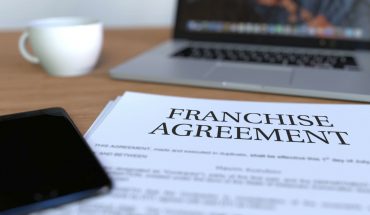Commercial Leasing
- 21 Aug 2020
- Download PDF
When renting business related property it is important for both Landlords and Tenants to understand the relationship they are entering into and the rights and obligations that they each have, the document that governs this relationship is usually a Commercial Lease.
So what is a Commercial Lease? A lease is a legally binding contract that gives you certain rights to a property for a set term. A commercial lease is used when leasing property used primarily for a business. You should never sign a lease without understanding all of its terms and conditions. If you don’t understand what you are agreeing to you could experience serious financial and legal problems.
It is important to properly investigate the property and lease document before you sign. It is a good idea to ask your lawyer to explain each clause of the lease to you. Your lawyer can give you legal advice, draft new clauses and help you negotiate the terms and conditions to suit you.
Important issues to consider when entering into a lease
A commercial lease will usually contain terms dealing with items such as:
Rent: How much is the rent and when is it due? The amount of the rent will usually be calculated based on the area of the premises. This may not always be a simple as it sounds if the shape of the property is irregular or the area includes a lift, more than one floor, outdoor area or interior walls.
Rent Increases: Rent will usually increase annually during the term of the lease, with increases determined by a fixed percentage, be market based or tied to the CPI. It is common for CPI or fixed
reviews to occur during the term of a lease and for a market review to occur at the expiry of the initial term and each option period.
Security Deposit: The landlord will usually ask for some form of security from the tenant in case the tenant defaults on their obligations (eg. not paying rent). The security is usually for an amount equal to 3-6 months’ rent and can be by way of bank guarantee. If the tenant is a company then personal guarantees from the company’s directors may also be required. The lease should also specify the terms regarding return of any security deposit. In terms of security, a lot depends on the prior experience and business experience of the tenant, as well as the financial position. If the tenant has limited financial experience in the proposed endeavour then the landlord will usually ask for a longer security of up to 6 months. If the lease is being transferred, the landlord could seek an alteration to the security deposit if the incoming tenant does not have strong prior business experience in the proposed venture, or if the financial situation is fairly weak.
Term of the lease: The lease should set out the length of the lease and any options to renew the lease and any terms relating to the renewal. A landlord will generally want a longer initial lease term (typically 3, 5 or 10 years) whereas the tenant is likely to want a shorter period (1-3 years). Option to Renew: An option allows the tenant to continue leasing the property on similar terms at the end of the initial period of the lease for a further defined period and rent (subject to any review). An option gives the landlord potential greater security of income and the tenant the ability to make longer term plans for their business.
Knowing the procedure for exercising the option especially when the option can be exercised is critically important
Improvements: A lease should address what improvements or modifications can be made to the property, who will pay for the improvements and whether the tenant is responsible for returning the property to its original condition at the end of the lease. Description of the property: The lease should clearly describe all of the property being leased, including bathrooms, common areas, kitchen area and parking spots. A plan of the property should also be included.
Signage: Any restrictions on putting up signs, say that are visible from the street, will be included in the lease. Also, check local zoning regulations to determine what other limitations may apply.
Use of the property: Most leases will include a clause defining what the tenant can do on the property (eg. What type of business). A tenant should ask for a broad usage clause just in case the business expands into other activities. Ask your local council if your business can operate in your desired location. Also consider the council’s development plans for the area.
Outgoings. The lease will set out who is responsible for costs like utilities, property rates & taxes, insurance, and repairs.
Insurance. You should contact your insurance company and discuss the clauses referring to insurance so you fully understand what is covered by the lease.
Exclusivity clause: This is an important clause for retail businesses renting space in a commercial complex. An exclusivity clause will prevent a landlord from renting space to a competitor. Assignment and subletting: A tenant should maintain the right to assign the lease or sublet the space to another tenant. Usually the tenant is still ultimately responsible for paying the rent if the business fails or relocates, but with an assignment or sublet clause in place, the business can find someone else to cover the rent.
Maintenance & Repair: The lease should clearly set out who is responsible for maintaining or repairing the property and the fixtures and fittings during the term of the lease.
Termination: The circumstances under which the lease will be terminated should be set out in detail in the lease.
Costs: The landlord may want the tenant to pay the costs of preparing the lease, this should be clearly set out in the lease. In retail leases the landlord cannot pass the cost of preparation of the lease to the tenant. In transfer of lease, even in a retail lease situation, the landlord does seek legal cost of their lawyers in relation to securing of consent. This is passed on to the vendor/outgoing tenant.
Retail lease or general commercial lease?
The Retail Leases Act 2003 has specific legislation relating to retail leases. This legislation is designed to provide additional protections to retail tenants and impose a range of obligations on commercial landlords, when compared to non-retail commercial leases.
For a new retail lease the landlord is legally required to give the tenant:
- a written lease with matters agreed to and signed off by both parties.
- a copy of the proposed lease as soon as the lease negotiations start
- a disclosure statement.
- the Victorian Small Business Commissioner Information Brochure as soon as the lease negotiations start. The disclosure statement outlines important information about the lease, for example:
- the term of the lease
- whether there are options for further terms
- the occupancy costs for leasing the premises (including rent and any outgoings)
- specific information for shopping centre leases
- tenant’s fitout requirements
- if there are any relocation or demolition clauses
To find out more call us on 03 9387 2424 or email info@rrrlawyers.com.au today.
Posted in: Building & Construction Law,
Following the breakdown of a marriage or de facto relationship, i...
This might seem a basic question but so many people simply do not...
Unfair dismissal matters can be complex and frustrating for both ...
The purchase of a home is arguably one of the most important purc...
There have been updates in the law regarding disclosure requireme...
When renting business related property it is important for both L...
Maintaining cash flow is essential to any business. Writing off d...
We often receive instructions after family court orders have been...
In this issue, we wish to introduce and outline an area of law of...
Do you have a friend or relative who has just separated? ...
How to get legal help for a victim of family violence? ...
Most people think that if a person is charged by the Police or Au...
A Power of Attorney is a legal document that gives a trusted pers...
It is often stated that the purchase of a house is the largest in...
The Fair Work Commission has powers to make anti-bullying orders ...
Introduction Mr. Prakash Raniga and his team have acted...
Buying a franchise is a good way to share in the success of a wel...
There has been an upswing in media reportage of domestic violence...
The team at RRR Lawyers specialise in assisting those who are pur...
You are required to enter into a major domestic building contract...
Things you need to know BEFORE the auction day Buying a...
Relationship difficulties and breakdowns are a sad reality of mod...
While many people are unlikely to nominate estate planning aka �...
Australia is a multi-cultural society, one of the most ethnically...
Body art such as tattooing and piercing has enjoyed popularity ov...
If you are a grandparent and face the sad circumstance of a break...
When starting a legal case, you must ‘serve’ the party agains...
Due to reforms introduced by the Building Legislation Amendment (...
The 2017/2018 Victorian Budget has made substantial changes to la...
The Building Legislation Amendment (Consumer Protection) Act 2016...
It is well known that a Will is a legal document which sets out h...
Social media – Facebook, Instagram, Twitter, Snapchat and the l...
Claims can be made for further provision from a deceased estate i...
Unlike married couples, de facto partners cannot apply for a divo...
GST and Residential Property Transactions The...
It is important for everyone over 18 to have a will to make sure ...
The new Powers of Attorney Act 2014 (Vic) commenced on 1 Septembe...
In one famous case, marriage is described as “the union of a ma...
Many migrants do not have relatives in this country beyond their ...










































